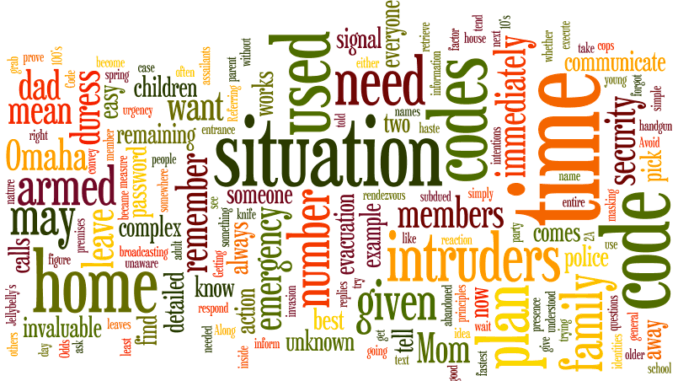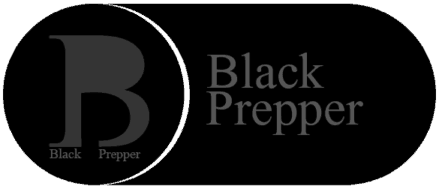
When some of us were young children, we had a password or phrase that our parents told us. This was to be used to either allow someone entrance into the home or when our parent sent someone to pick us up from school. When we became older we abandoned this security measure because we felt it was no longer needed. Odds are, the only time we use this type of security again is when we have children of our own. As an adult, the security password can be invaluable. It can be used to simply communicate to your family that you want to leave a function without broadcasting it, or communicate an important situation, like being under duress.
In a situation where you need to leave the premises immediately, having a code is the fastest way to inform others in your party of your intentions. It is understood that this code is not to be used unless there is a true emergency. When the code is given, it means a time for action, not a time for questions. Here is an experiment you can try with your family. The next time you want to take them somewhere, don’t tell them beforehand. When the time comes, say, “We have to leave right now.” Most people will not spring into action immediately, instead they will ask, “why?” or “what’s going on?” This is not the reaction you want when there is an emergency and time is a factor. You may not have time to give a detailed account of the situation, but you need to convey a sense of urgency while at the same time giving a general idea of the situation.
There is no need for 10’s or 100’s of codes, but you should, at the very least, have two. One code should be for evacuation and the other for duress. Along with the code, there should be a plan for when those codes are given. For evacuation, everyone should know the plan inside and out, who is to grab what and where to rendezvous. When under duress, more information may need to be given with the code, such as the number of assailants and whether they are armed. For example, “Omaha 2A” could mean that there are two armed intruders who are unaware of your presence. “Omaha” because, in my case, it is not a word often used and it is a good distance away. “2” for the number of intruders. And “A” because they are armed. Or “Omaha” by itself could mean an unknown number of intruders and it is unknown if they are armed.
Code names for each family member can also prove to be invaluable. Referring to members by the code name can be used in an emergency to signal distress, safety or masking identities. For example, during a home invasion, dad has been subdued as the intruders wait for the entire family to arrive home. Mom comes home and calls out to dad. The intruders tell him to respond and dad replies, “Did you remember to pick up ‘the baroness’?” Mom says, “Oh no, I forgot. I’ll get her now,” and immediately leaves with haste. Once away from the house she sends a text to the remaining members, “Jellybelly’s home” and calls the police. The remaining members find the nearest restroom and lock themselves in. Mom goes to retrieve them with a police escort while the other cops tend to the situation at the home. While this is an extreme situation, the principles are always the same. Have a plan, everyone should know the plan and execute the plan when the signal is given.
Your codes should mean something to you as you and your family/party will have to remember them. Avoid commonly used codes and complex number codes. The purpose of the codes is for them to become second nature; easy to remember and easy to say. Getting too complex and detailed may work against you in time of need. You may find yourself trying to figure out if the situation is a 10-603k or 10-115g because you didn’t clearly see if it was a handgun or a knife. At the end of the day, what works best for you is ultimately up to you. Keep in mind that simple always works best.

I remember when I was in high school setting something like this up with my friend text we codes we could send each in case an emergency like walking home late after hanging out and hide ourselves being followed or if something happened to us to call our families or cops
We had a code for our daughters when they were young. Now I’ll send this to them with new ideas for codes.